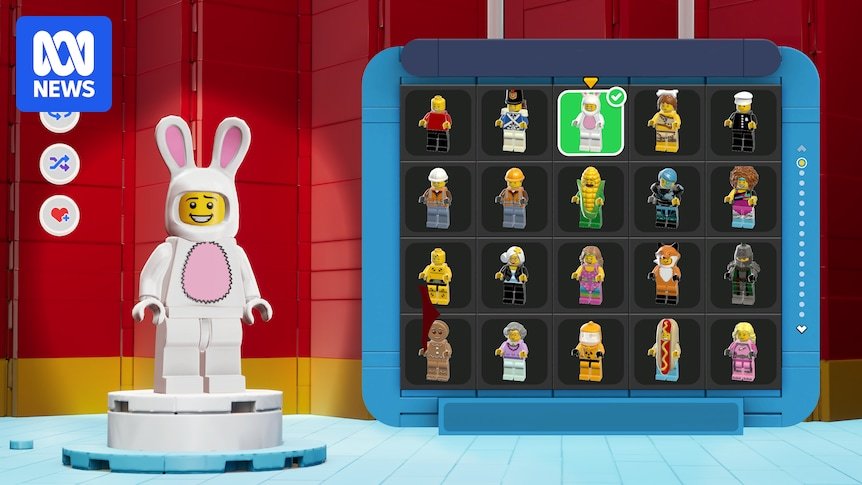Digital media researchers say online video games could yet be included under the federal government’s social media ban for under-16s.
The ban currently excludes online services “that have the sole or primary purpose of enabling end-users to play online games with other end-users”.
But associate professor Brendan Keogh, from the Queensland University of Technology’s Digital Media Research Centre, said the definitions under the ban were “incredibly vague”.
Brendan Keogh says online video games like Roblox are important for socialising young people. (Supplied: Queensland University of Technology)
“I still have questions about how much any minister of the day can change what is or isn’t excluded from those central definitions,” Dr Keogh said.
“I think there’s concern in the video game industry about just how reliable or permanent that exclusion of [online] games is.”
Banning games ‘whack-a-mole’
Last month, eSafety Commissioner Julie Inman Grant confirmed she had written to online game platforms, including Roblox and Lego Play, advising the ban could apply to their services.
According to Marcus Carter, professor in human computer interaction at the University of Sydney, Roblox is “rightfully critiqued” for a lack of effective moderation of “fringe, far-right material” uploaded by users.
Marcus Carter says Roblox attracts 360 million players per month, who can upload content to the platform. (Supplied: Roblox Corporation)
He said although this was a risk factor for young people, any ban would simply push them on to other games.
“When I ran studies in 2021, everybody was playing Fortnite. Now, the kids are all playing Roblox and in three years, they’ll be playing a different game,”
he said.
“Is the commissioner going to play whack-a-mole with every game that children start playing? Once children are banned from creating an account on one game, they’re just going to move to another game.”
Including games in ban an ‘overreaction’
Professor Carter said the risk factors did not justify the social media ban being expanded to include online video games.
“The risks are overwhelmingly outweighed by the positive social, creative and intellectual benefits of playing games for young people,” he said.
“Parents should engage with their children and the games they play, but banning children from those spaces would be a ridiculous overreaction.”
Marcus Carter says play, digital or otherwise, is a human right for all children. (Supplied: University of Sydney)
According to a statement released by the Interactive Games and Entertainment Association, video games are regulated by the National Classification Scheme, which provides clear guidelines on age-appropriateness and content.
Developers building safer games
Ashley Ringrose, founder of Australian video game developer SMG Studios, said he was not worried about losing business over the ban.
“Only about 2 per cent of our market is in Australia, so even if we lose 50 per cent of our [Australian] users, it’s 1 per cent of our market,”
he said.
Mr Ringrose, a father of two, said SMG Studios’ games, some of which allowed young people to interact online, were designed with safety in mind.
Ashley Ringrose says SMG Studios restricted online players to 13 years plus when developing Risk: Global Domination. (Supplied: SMG Studios)
“Children could describe something innocuous, like where they live, their school or their favourite restaurants, that identifies them. We try to restrict that,” he said.
“We purposely don’t have live [text or voice] chat in our games because of the potential for exploitation of people giving basic personal information.“
Mr Ringrose said SMG Studios had also used “canned chat”, where players send pre-defined messages and restricted online play to players’ digital friends or teenaged players only.
‘Not the right way to go’
Professor Carter would like to see more safeguards in online video games, but he said a ban was not the answer.
“A ban is going to eradicate the opportunity to create ‘safety by design’ features that make children’s online play worlds better,” he said.
“That’s not the right way to go about building a safer children’s internet.”


Leave a Reply